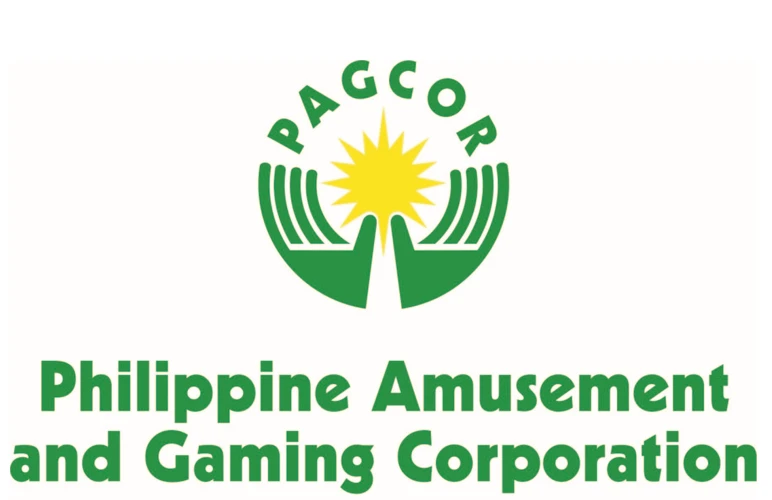
PAGCOR: Philippine Amusement and Gaming Corporation
The Philippine Amusement and Gaming Corporation, better known as PAGCOR, is one of the most interesting names in the world of gambling regulation and casino licenses. You see, unlike many other authorities that simply hand out licenses, PAGCOR wears two hats. The first is that it regulates the industry and the second is that it also operates casinos of its own. But it’s this dual role that gives the authority a unique position in global iGaming and makes it worth taking a closer look.
- Government-owned, adding credibility and accountability
- Licenses both land-based and online operators
- Revenue supports public projects in the Philippines
- Known across Asia as a significant regulatory body
For players, it’s important to understand what PAGCOR stands for beyond just a stamp of approval. It‘s also about trust, safety, and knowing that the casino you’re playing at has to meet certain standards.
So, with that in mind, let’s get to exploring what makes PAGCOR such an important name in online gambling. But before that, discover the best casinos with this license below.
Top online casinos with PAGCOR’s license
If you’re in Europe, it’s highly unlikely that you will come across online casinos with the PAGCOR license seal. But our experts are on hand with a list of operators with this license.
All about the Philippine Amusement and Gaming Corporation
On January 1, 1977, President Ferdinand Marcos issued a Presidential Decree No. 1067-A. The content of the decree? The formation of the Philippine Amusement and Gaming Corporation (PAGCOR), in what was termed as a response to an increased penetration of illegal casino activities in the country.
However, what started as a simple regulation of gambling activities for PAGCOR quickly grew in scope into new territories due to the evolution in technology. For instance, e-bingo stations popped up, poker rooms were formed, and later, online operators took the industry by storm.
In fact, it was in 2016 that the then administration started regulating offshore gaming operators through the Philippine Offshore Gaming Operators (POGOs). However, the same program was shut down in July of 2024 after President Bongbong Marcos banned it.
But what you’ll find unique about PAGCOR is apart from just being a regulator, it’s also a revenue engine for the Philippines. Today, it stands among the top contributors to the national budget since it runs a string of land-based and online casinos.
Types of PAGCOR license
To effectively oversee gambling activities in the Philippines, the Philippine Amusement and Gaming Corporation (PAGCOR) has several licenses as explained below:
E-Games/E-bingo Licensing Department (EG/EBLD)
As the name suggests, this licence is mainly tailored for internet-based gaming sites that serve players within the country. Look at it as the digital extension of PAGCOR’s traditional land-based oversight.
That means operators under this license can run online versions of casino classics like slots, blackjack, and even live dealer tables. But to get the green light to do this, operators must have their servers physically hosted in the Philippines.
Gaming Licensing and Development Department (GLDD)
Casino operators in the Philippines must undergo vetting from this department to get a license to conduct their activities. But more importantly, is the department’s role in crafting regulations and other frameworks for casino operations.
Further included in its role is the handling of casino suppliers’ accreditation while also ensuring licensees acquire Gaming Employment Licenses (GEL) for all employees. The GLDD is also tasked with enforcing the Responsible Gaming Code of Practice and overseeing all operations of casino licensees’ charitable foundations.
Offshore Gaming License Department (OGLD)
This unit is tasked with processing, evaluating applications for offshore gaming and granting licenses to operate. Also within its mandate is to accredit customer service, live streaming, and studio providers, as well as gaming software platforms.
Table Games Department (TGD)
Generally, this department’s main concern is the overall regulation of legitimate poker clubs and persons, locations, practices, plus related activities of Casino Filipino and other satellite casinos in the country.
Slot Machine Department (SMD)
From its name, this department is all about regulating the slot machine industry in the Philippines. Note that these are the physical slot machines you’ll find at brick-and-mortar establishments.
Notable point: E-Sabong Department (ESD) was also part of the departments under PAGCOR, but through a Memorandum from the Executive Secretary on May 3, 2022, all E-Sabong operations were suspended. This department was tasked with developing regulatory frameworks while also issuing licenses to operators that offer cockfighting matches.
How the Philippine Amusement and Gaming Corporation stands out

There are plenty of regulators worldwide, but PAGCOR has carved out a distinctive role in the industry. Other than being a watchdog, it’s also an operator and a revenue generator for the Philippine government. But here’s what makes it different from the rest:
Dual role as operator and regulator
One of PAGCOR’s quirks is that it acts as both a regulator and a casino operator. It owns and runs its own chain of land-based casinos across the Philippines while also simultaneously overseeing private operators.
Now, this is an unusual setup considering most regulators like the UKGC or MGA strictly stick to licensing and monitoring. As such, this makes this license stand out because it creates a more hands-on style of governance. And that’s because authority is not just about writing the rules, it’s also about living by them as an operator. That means the regulator has skin in the game and understands the day-to-day challenges of running a casino.
Level of player protection and anti-fraud measures
Player protection is one of PAGCOR’s strongest cards as seen in its insistence on casinos to use encrypted payment gateways, multi-factor authentication, and even transaction monitoring systems that can flag suspicious behaviour.
And to add to this, the regulator also enforces anti-fraud measures to prevent money laundering and identity theft. Some of these measures include performing KYC checks and maintaining clear financial records.
Compliance rules for operators
PAGCOR is just about handing out licenses like candy and walking away. Licensed operators must meet a set of compliance rules, ranging from financial audits to strict monitoring of their advertising practices. Some of these rules include:
- Submit regular reports on player activity and financial transactions
- Avoid targeting vulnerable groups in marketing campaigns
- Maintain a separate account for player funds
- Provide fair terms on bonuses and promotions
And when operators step out of line, PAGCOR has shown it will act. For example, in recent years, it has revoked licenses of several POGO operators for failing to comply with anti-money laundering laws and non-payment of taxes.
Public registry availability
Transparency is also another form of protection and PAGCOR maintains a public register of licensed operators, which anyone can access. With this registry, you can check the names of legitimate casinos, their license numbers, and their authorized activities.
This is an invaluable tool for players because if you’re unsure about the status of any operator, you can simply cross-check the brand in the official list.
Trusted casino groups using this license
PAGCOR has built a strong reputation, especially in Asia, and that has naturally attracted a mix of heavyweights and international players. Besides, the authority’s reach goes beyond simply rubber-stamping licenses. It shapes how brands position themselves in the highly competitive gambling space. And speaking of brands, take a look at some of the most notable companies operating under PAGCOR’s umbrella:
- Bloomberry Resorts Corporation – Owner of Solaire Resort & Casino, one of the flagship integrated resorts in Manila’s Entertainment City.
- Melco Resorts & Entertainment (Philippines) – Behind City of Dreams Manila, a multi-billion-dollar resort with casino floors, luxury hotels, and entertainment hubs.
- Tiger Resort, Leisure and Entertainment, Inc. – Operator of Okada Manila, a property with one of the largest gaming floors in the world.
- Travellers International Hotel Group – The joint venture that operates Resorts World Manila (now Newport World Resorts).
These names aren’t just regional players, they are part of multinational groups with interests spanning Macau, Las Vegas, and other gambling hubs.
But then why do these companies choose this authority? Well, for starters, it’s about its strategic relevance that makes it relatively straightforward to enter Asian markets. Then, of course, it’s all about compliance benefits, even though it’s not as strict as the UKGC or MGA.
Pros and Cons for Players
Just like any other regulator in the industry, PAGCOR has its strong points and weak spots as listed below:
Pros
- Backed by the Philippine government, ensuring accountability
- Supports both land-based and online operators
- Relatively strong responsible gambling policies
- Access to luxury resorts for Filipino players and tourists
- Player dispute resolution
Cons
- Weaker international recognition
- Less strict on enforcement than European regulators
- Limited offshore protection
After all is said and done, the PAGCOR license does offer a decent safety net. Your games are tested, your money is guarded by security protocols, and you have somewhere to turn to if things go south. But there are several trade-offs to contend with, including loose regulations, unlike what the MGA or UKGC provides.
What to expect from the Philippine Amusement and Gaming Corporation-licensed casinos
When you sit down at a PAGCOR-licensed casino. Whether that’s a land-based venue or an online casino, you’re certain about an environment that has certain guardrails. With that said, PAGCOR isn’t the most rigid regulator in the world, but it does lay down rules that shape the player experience. Here’s what you can expect.
Customer service quality
The customer service offered at PAGCOR-licensed casinos is generally solid. Offshore brands competing for international traffic often offer 24/7 multi-lingual live chat. Other support channels you’ll come across include FAQ hubs and email. And for local PAGCOR venues, you’ll usually find on-site assistance or phone lines.
But even more importantly, is the fact that PAGCOR throws its weight behind the need for operators to respond to player complaints in a timely manner. Of course, the responsiveness varies from one operator to another and if the casino fails you, you can count on the PAGCOR complaints process as a safety net.
Bonus transparency and limits
The bonus or promotion you’ll come across will depend on the online casino you choose. Before offshore brands were banned, they were the go-to sites for hefty welcome packages, reload bonuses, cashback, and VIP perks.
But since local PAGCOR casinos are what’s left, look out for more restrained offers. What the regulator is clear about is that bonuses must be clearly advertised with transparent terms to give players fewer nasty surprises in the fine print.
Withdrawal speed and reliability
For many players, payment speed makes or breaks a casino experience. But with PAGCOR in the picture, operators are required to set clear timeframes for withdrawals and to keep player funds separate from operational budgets. That essentially means your winnings are less likely to be delayed due to the company’s cash-flow issues.
The biggest difference comes in when you look at the available payment methods. Unlike offshore operators that often support a wide array of international payment options, local casinos tend to be more limited. Still, they are expected to process payments within a fair timeframe.
Tools for responsible gambling
One of the key aspects the PAGCOR license covers is responsible play. That means operators under this regulator must provide players with tools to regulate their gameplay. And such tools include the likes of deposit or loss limits, self-exclusion, and even display clear messaging about gambling risks. In fact, so committed to the cause is PAGCOR that it funds campaigns to raise awareness about gambling addiction in the Philippines.
Yes, the regulator is not as aggressive as some of the European top-hitters when it comes to enforcement. However, PAGCOR is steadily strengthening its approach, especially as international scrutiny increases.
Language availability, mobile UX, platform quality
The regulator does not directly dictate mobile app design, but PAGCOR does require operators to stay up to date with modern platforms and secure technologies. That means offering fully mobile-compatible sites and apps.
Consequently, players can look forward to smooth play regardless of whether they use Android or iOS devices. But for local PAGCOR outlets like e-cafes, the focus is generally more on in-person terminals.
How PAGCOR’s license compares to others
Because different regulators bring different strengths to the table, seeing how PAGCOR stacks up against some of the big names is a good way of gauging its overall effectiveness in the industry.
| Regulator | Player safety level | Compliance strictness | Costs | Key notes |
| PAGCOR | Moderate | Medium | Mid-range | Dual role (operator + regulator), offshore POGO licences |
| Curacao | Low | Loose | Low | Affordable but minimal player protection |
| UK Gambling Commission (UKGC) | Very high | Very strict | High | Strongest consumer safeguards globally |
| Gibraltar/Alderney | High | Strict | High | Popular with major international operators |
Malta Gaming Authority (MGA) | High | Strict | Mid to high | Well-regarded in Europe, balanced costs |
| Anjouan | Low to moderate | Light | Very low | Attractive for startups, but limited oversight |
Is this license a mark of quality?
PAGCOR sits in a fascinating space within the global gambling industry. You see, on one hand, it offers players in the Philippines a trusted, government-backed framework that protects their funds, while ensuring fair play. But on the other hand, its mixed reputation abroad and the recent collapse of its offshore licensing model show challenges of balancing regulation with international credibility.
Even so, the takeaway is quite simple for players. A PAGCOR license is a strong signal of legitimacy if you’re playing within the Philippines, plus, it guarantees safety. And while it might not yet carry the same weight as MGA or UKGC, it still represents a meaningful layer of protection.
So, as the gambling landscape continues to shift, PAGCOR’s role will remain just as pivotal, especially in the Asian market. Meanwhile, you can explore our full list of reviewed casinos operating under this license to find your next favorite site.




